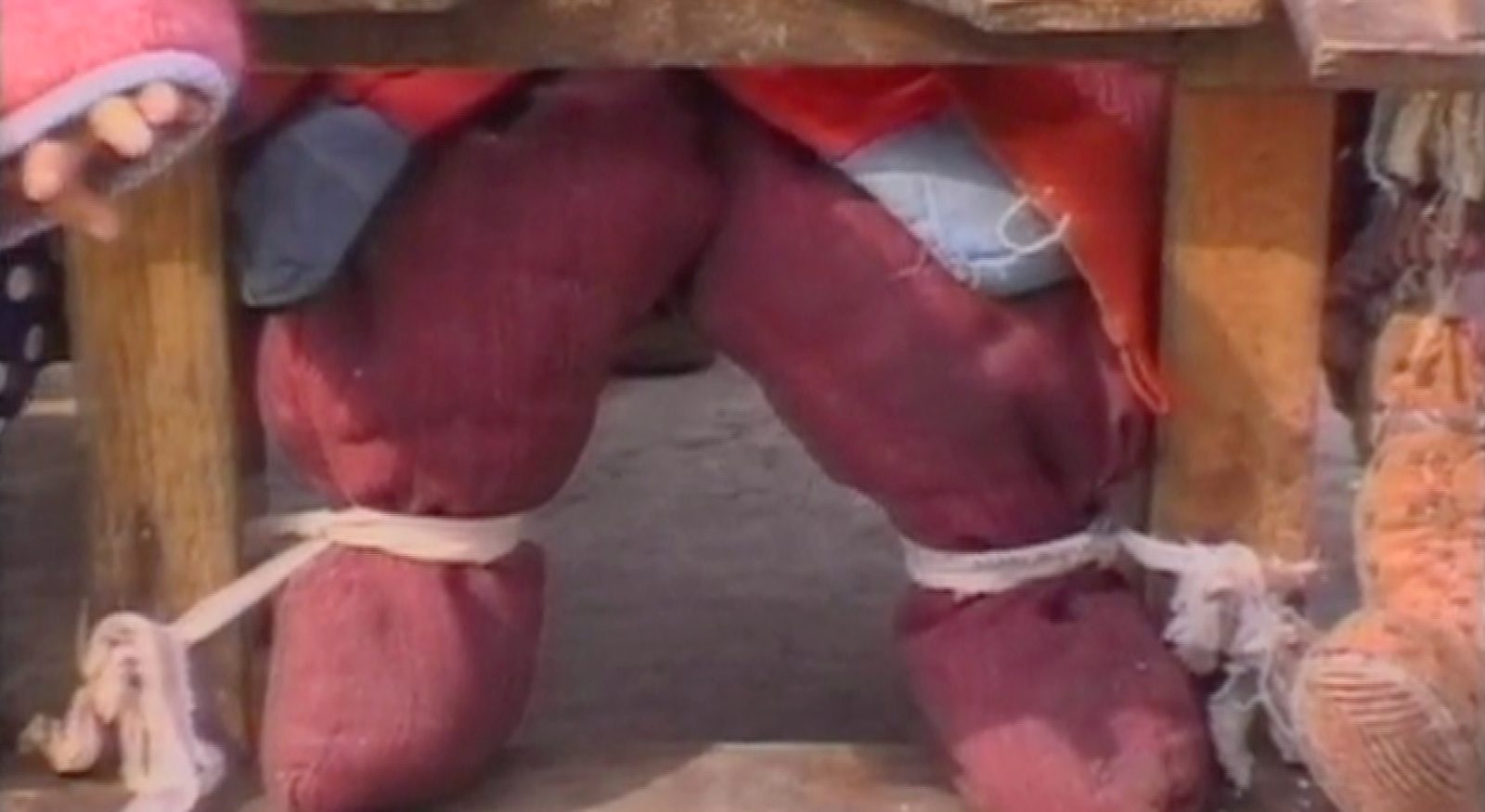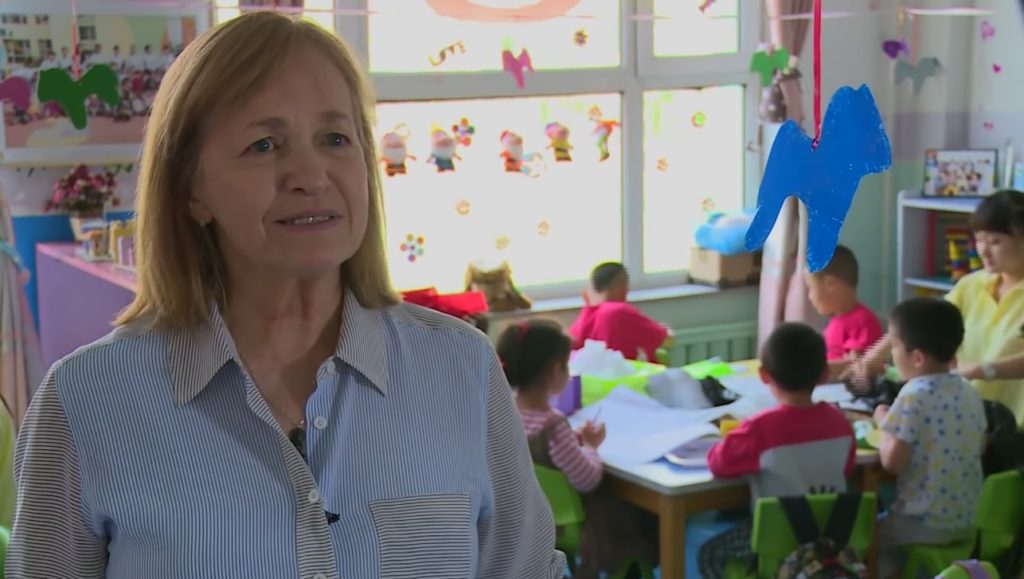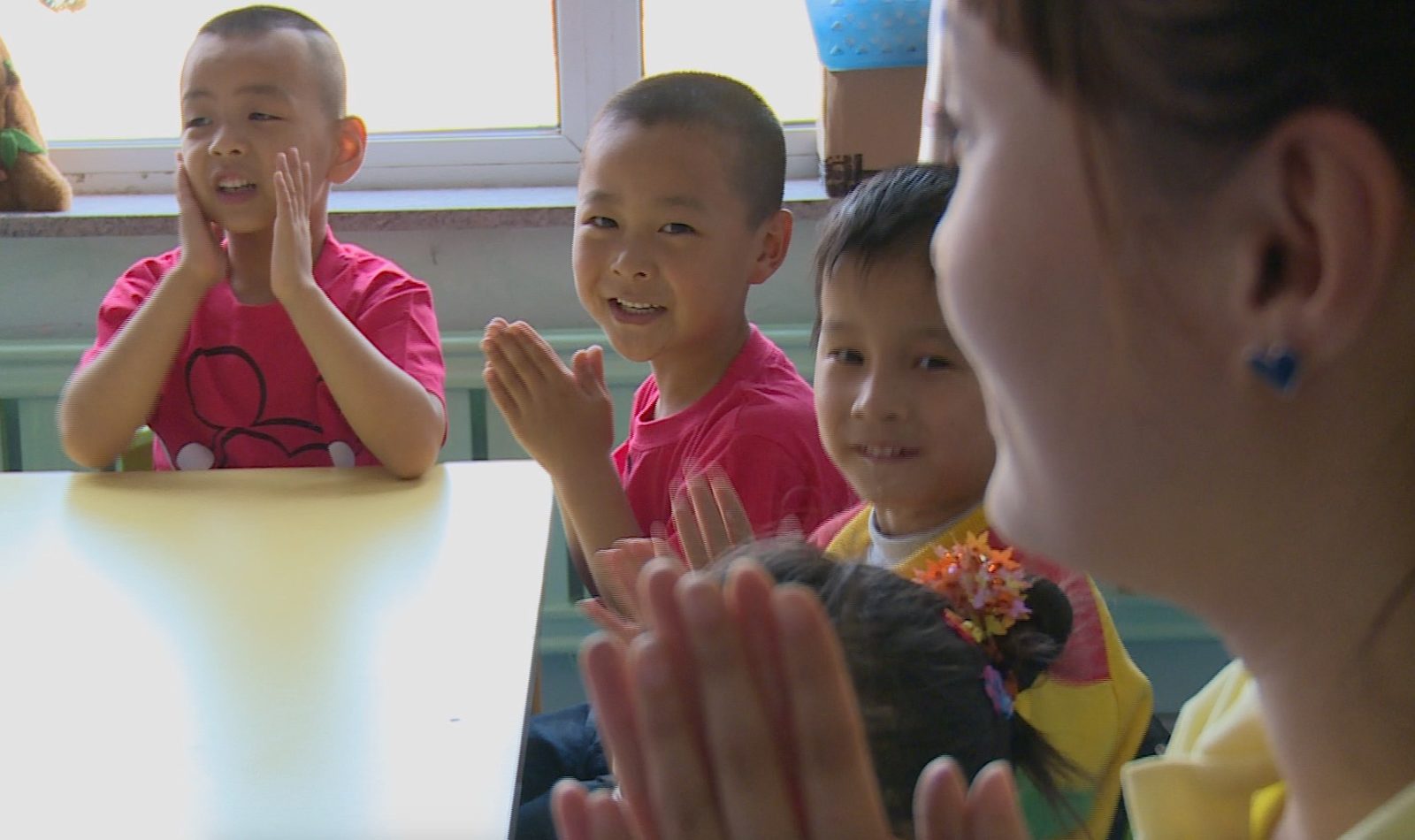- JUDY WOODRUFF:Finally tonight, one woman’s efforts to transform the way orphans are cared for in China.”NewsHour” correspondent Fred de Sam Lazaro reports as part of his Agents for Change series. A version of Fred’s story aired on the PBS program “Religion & Ethics Newsweekly.”
- And a warning:This piece contains some disturbing images.
- FRED DE SAM LAZARO:For the Bowen family, this was a huge day.
- MAN:She got the international baccalaureate diploma, and then she got the biliteracy medal, as opposed to bilingual. It’s like she can read and write and talk.
- FRED DE SAM LAZARO:That 18-year-old Maya Bowen can talk, let alone graduate with honors, seems both natural and unlikely, given her early childhood in a distant orphanage. Richard and Jenny Bowen adopted her when she was two.Jenny Bowen, Half the Sky Foundation: No one had ever talked to her and, you know, language develops when people talk to you. That’s how you learn to speak, so she had no language at all.
- WOMAN:OK. Daddy is going to take pictures of you.
- FRED DE SAM LAZARO:Jenny Bowen recently published a book called “Wish You Happy Forever,” chronicling how Maya and later Anya came to be part of the family. The California couple were already in their 50s, with grown children, but they were moved by reports of child neglect on a vast scale in China.
- WOMAN:Here, we found toddlers tied to bamboo seats, with their legs splayed over makeshift potties.
- FRED DE SAM LAZARO:This 1995 film, shot undercover, called “The Dying Rooms” showed orphanages filled with girls, abandoned in a country that had begun restricting families to one child in a culture that traditionally favored boy children.
- JENNY BOWEN:We thought the thing we could do was save one life. So that’s what we did. We went to China to save a life.
- FRED DE SAM LAZARO:But she found it impossible to ignore the conditions Maya would escape, but where millions of others still languished — in the custody of indifferent or untrained workers, invisible in a nation focused on industrializing its way out of Third World poverty.Sixteen years later, Jenny Bowen heads a group called the Half the Sky Foundation that’s helping transform the way orphans are cared for across China, with the blessings of and often in partnership with the government.The name derives from a Chinese proverb that says women hold up half the sky. The group has so far trained 12,000 teachers and nannies in 27 provinces. We visited in the northeastern city of Shenyang.
- JENNY BOWEN:All these children are abandoned. Many of them are abandoned because they have what are called special needs.Before Half the Sky, children are tied to their chairs. They were lying in bed. You could see the tragedy. You walk into a room, and you were just confronted with the tragedy. Here, it’s invisible. These children are going on with their lives. They’re being treated like their lives matter. And they know it. They know they’re loved, and so they thrive.
- FRED DE SAM LAZARO:She says children need a sense of being part of a family, in whatever shape family takes.
- JENNY BOWEN:It doesn’t mean that they have to be back with their birth families or permanently adopted or anything. They just need to have the love that a family gives naturally to a child, and, to me, it was like a no-brainer.
- FRED DE SAM LAZARO:It was not a no-brainer to get her ideas across in an opaque state-run welfare system. What’s more, the publicity about orphanage conditions was deeply insulting to a government highly sensitive about China’s image.Zhang Zhirong works for Half the Sky’s China offices.ZHANG ZHIRONG, Half the Sky Foundation: China always want to tell the world she is the best, everything perfect. We are serving the people. We are helping the people. That’s China politically. But, as you know, China is such a big country. At that time, it was difficult to let people, especially foreigners, to come in to see some of the problems, to see some of the dark side.
- FRED DE SAM LAZARO:Zhang was a key early ally, an English professor and official interpreter well-versed in the culture and politics of the bureaucracy. She was convinced of Bowen’s sincerity.
- ZHANG ZHIRONG:I really feel she had the heart. She wanted to help. No other intentions.
- FRED DE SAM LAZARO:Did it help that she had Chinese daughters as well?
- ZHANG ZHIRONG:That’s also — we would tell — she always says, “I’m half-Chinese. My daughters are all Chinese.”
- JENNY BOWEN:I know that resonated. Certainly, the international criticism let them know that something had to be done. I probably was the least threatening of the options out there.
- FRED DE SAM LAZARO:Bowen began by seeking guidance from child development experts. She raised funds in Hollywood, where she was a screenwriter and filmmaker, and from American couples who’d adopted Chinese daughters. She organized volunteer trips to train caregivers and spruce up the environment in which orphans spent their days.Children who once sat impassively are now in busy preschools. Walls that had generic cartoon images now display the children’s own artwork and pictures.
- JENNY BOWEN:Children in institutions, in traditional institutions, they move in packs. They all eat at the same time, they all sleep at the same time, they all pee at the same time, and they don’t separate themselves from each other.So we use a lot of mirrors, we use things like this, where they can identify themselves and their friends, and it’s a way for them to start knowing who they are, and that’s the beginning of developing intellectual curiosity and opinions.I can tell you already have opinions, right?
- FRED DE SAM LAZARO:Teacher Lin Lin says Half the Sky’s approach, called responsive care, is tailored to children’s individual learning interests — a far cry from the previous rote learning.LIN LIN, Schoolteacher, Half the Sky Foundation (through interpreter): Kids were asked to recite a lot of things, old poems and literature, which they did not understand, they weren’t interested in. Now we’re doing things that are interesting to them. Gradually, you build a trust with these children, and they begin to consider you as part of their family.
- FRED DE SAM LAZARO:That’s a key goal: to make such caregivers part of the child’s understanding of family. But Half the Sky is also building so-called family villages, a more traditional setting.Couples, most with grown children, like Liu Peng Ying and her husband, Chen Yung Chang (ph), are given housing and a small stipend to raise their young orphaned charges. It’s an easy sell in a country where large families used to be the tradition.
- LIU PENG YING, China (through interpreter):These are like my own children, like my grandchildren. My husband likes children even more than I do. That’s why we decided to apply for this program.
- FRED DE SAM LAZARO:In today’s wealthier, more urbanized China, Bowen says fewer healthy female babies are abandoned. About three quarters of a million children are in state custody.They are more likely to be from impoverished rural areas and more likely to have congenital or medical conditions their families cannot afford to treat.
- JENNY BOWEN:So, in this room, we find children who have pretty severe special needs.
- FRED DE SAM LAZARO:For them, Half the Sky runs a care center in Beijing, with corporate foundation and government support. It provides care for children as they await or recover from surgery or as, in the sad case of 4-year-old Pin Pin, chemotherapy
- JENNY BOWEN:She has cancer in both of her eyes?
- WOMAN:Yes, and eight times chemo.
- JENNY BOWEN:Eight times chemo.
- FRED DE SAM LAZARO:For the weeks or months Pin Pin will spend here, a teacher will help her adjust to the loss of her sight.
- JENNY BOWEN:You need to have a teacher, because you have a lot of things you have to learn. We don’t just worry about your eyes. We have to worry about your brain, huh? Yes.
- MAN:Maya Bowen!(CHEERING AND APPLAUSE)
- FRED DE SAM LAZARO:Maya Bowen plans to become an elementary teacher. She and Anya, a high school junior, have gone from being thankful to impressed.
- MAYA BOWEN:I did a paper and we could — at school, and it was a research paper, and we could do it on anything, so I chose my mom, because I thought that would be an easy topic. But then, when I started researching and learning everything she did, I was like, wow, like, this goes way farther than I thought. She has, like, a much bigger influence than I ever thought.
- FRED DE SAM LAZARO:Jenny Bowen is now 68 and CEO of a now $7 million-a-year enterprise that she hopes to expand beyond China to neighboring countries in Asia. She has no plans to retire.
- JUDY WOODRUFF:Fred’s reporting is a partnership with the Under-Told Stories Project at Saint Mary’s University of Minnesota.
Half the Sky
After reaching their fifties and raising their own children, Jenny and Richard Bowen adopted 2-year-old Maya from China after learning of poor orphanage conditions for abandoned girls. Sixteen years later, the Bowens have two adopted daughters from the same region and have started a non-profit called Half the Sky to transform orphan care with the cooperation of the Chinese government. Fred de Sam Lazaro reports.
Related Links:Half the Sky Foundation

“The Dying Rooms”
This 1995 film, shot undercover, showed orphanages filled with girls, abandoned in a country that had begun restricting families to one child in a culture that traditionally favored boy children.

JENNY BOWEN
“All these children are abandoned. Many of them are abandoned because they have what are called special needs.Before Half the Sky, children are tied to their chairs. They were lying in bed. You could see the tragedy. You walk into a room, and you were just confronted with the tragedy. Here, it’s invisible. These children are going on with their lives. They’re being treated like their lives matter. And they know it. They know they’re loved, and so they thrive.”







